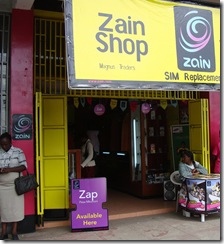The Tanzanian government has announced that it would like to buy the 60 per cent stake in Zain Tanzania that is now owned by India’s Bharti Airtel. The offer came a few days after Bharti Airtel offered US$11 million to buy out the government’s 40 per cent stake in the operator.
The Tanzanian government argues that Zain’s decision to sell its Tanzanian subsidiary to Bharti Airtel, as part of the sale of most of its telecom assets in Africa, violated an agreement between Zain and the Tanzania Telecommunication Co. (TTCL). Zain acquired a 35 per cent stake in TTCL, the state-run telco, more than five years ago and had recently agreed to sell that stake back to the government.
The government is understood to be trying to build a profitable state-owned telecom company and would like to own both a landline and mobile network.
The Tanzania Communication Regulatory Authority (TCRA) has not formally granted permission for the sale of the local subsidiary to Bharti Airtel.



